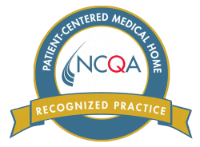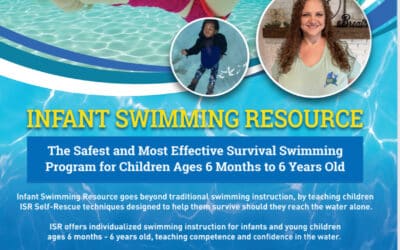Ages and Stages

Newborn
Congratulations on the birth of your baby!
We love children of all ages but being able to care for your newborn is an extra special blessing. To provide care from the very beginning and to see them grow up is quite rewarding. As your pediatric health care team we strive to provide your newborn with exceptional medical care. These are exciting times and there will surely be many questions. We are available to help! Regularly scheduled well baby check-ups are the time to get your routine questions answered. We offer advice and anticipatory guidance as well as examining your infant’s growth and development. We encourage new parents to call with questions or concerns that can’t wait until the next visit. We offer after hour telephone nursing triage with physician and nurse practitioner accessibility for emergencies that arise outside of normal business hours.

Infants
The first couple of months have passed by and hopefully you have established some sort of schedule and have adapted to your new life. At this point you should be seeing some smiles and hearing some cooing which affirms your little one loves you and very much appreciates all of your hard work. There will be so many changes in the next year as you continue to adapt to having an infant in your home.

Toddlers
Celebrating your child’s first birthday is a grand occasion. It is a time to pause and reflect on how much has changed over the past year. You are realizing it was just as everyone said it would be in that it goes by so fast. So many changes. So much growth. Well, hold on because it is surely not going to slow down. Between one and three years of age children move from being babies who need you to do everything for them, to becoming separate, independent people. They want your love and to feel safe and close to you, while also wanting the freedom to do things for themselves.
It can be challenging for parents as toddlers struggle with their feelings and behavior. It can help to know what’s happening to them so you can support their independence, help them learn and keep them safe.

Elementary School
Getting to know you and your child is vital to our success as pediatricians. We want to be your partner in helping you establish healthy habits that will last a lifetime.
During the elementary school ages from 5-12 years old, many changes will occur within the family. Your child is more independent, able to care more for themselves and capable of contributing to chores and other household responsibilities. Routines have been established and in many ways life seems more settled. However, your children still need an abundance of parental supervision and guidance.
During the childhood years, parents have tasks that are especially important. One is to encourage your child to enter the new world of school and establishing relationships outside of the home. The second is learning to be parents while allowing your child some independence. We recognize there are options for school with many families choosing to homeschool. However most children continue to be educated in a traditional setting. Once children enter school, parents spend less than half as much time with them as they did before. Parents need to be more efficient, more vigilant, and still very much involved in their children’s lives in order to monitor, guide, and support them effectively.
During the school years your child will develop self-confidence, overcome fears and self-doubts, test the limits of their autonomy, find role models, and learn and internalize moral and spiritual values. You and the rest of the family should pay particular attention to the following areas, which will become increasingly significant during this time of life:

Teenagers
Your little one is not so little anymore. That little bundle of joy has made it through the “terrible twos” and all the childhood adventures. Times are changing. Your child is maturing and wants greater independence.
The teenage years can be a challenge for parents. These years can bring forth frustration, disappointments, and detachment. These years can also bring delight, satisfaction, and closeness. Your teenager will make mistakes. Accept that and continue to love them through it. Encourage them to learn from their mistakes and move forward.
We often want to protect our teenagers from making the same mistakes that we made. That is a wonderful desire but it is not always possible. Do not be afraid to allow them to suffer consequences for their actions. You have taught them all these years right and wrong and have rewarded them when they made good choices and provided discipline when they made poor choices. Continue to do that.
Remind them often what you expect of them as it pertains to responsibilities around the home, academic progress, social endeavors and the list could go on and on. Be readily available and encourage discussions pertaining to sexuality issues, alcohol, and drugs.
Even if times get rough, continue to remind them that you love them. Commend them often when you recognize or are made aware of good choices made. Be honest and let them know that you do not agree with some of the choices that they make. Refrain from making excuses for their poor behavior and do not view poor choices as a right of passage and dismiss their behavior as “that is just what they do at this age.” They should be growing up and maturing and their choices and actions should reflect that.
You are recognizing that they are maturing and the temptation can be that you want to be their friend. Yes your relationship can seem like a friendship but that must never interfere with your role as a parent. Be committed not to blur the lines. They must respect you in your parental role. Enjoy their last years under your roof appreciating who they have become and looking forward expectantly to how they will contribute as productive members in society.
Latest From Our Blog
Chapin Pediatrics Proud to be Presenting Sponsor of Run Hard Midlands 2023
Run Hard is an after school program that builds confidence in kids by teaching life values through the sport of running. Kids train for eight weeks to finish a 5k road race while learning life values that help them become better teammates. Through the Run Hard program...
Survival Swimming Program for Children Ages 6 Months to 6 Years Old
Safety in and around water is an area of concern for many parents, especially as summer months are approaching. Living near a lake, pool, and other bodies of water can be both a luxury and an opportunity to learn more about safety. Infant Swimming Resource (ISR)...
Happy Thanksgiving
Time is surely flying by. I have been blessed to be able to serve this community for the past seventeen years. The little babies I held on their first days of life are now seniors in high school. In this season of Thanksgiving I have paused to reflect on things that I...
Well Care Visits
Children grow quickly in the first years of life so we believe that well visits are important for preventative measures. This allows us to ensure that your child is staying healthy and reaching appropriate developmental milestones. We recommend well visits at the 2 week mark as well as the 2, 4, 6, 9, 12, 15, and 18 month mark. We also recommend a visit when a child turns 2, 3, 4, 5, 6, 8, and 10 years old.
Immunizations
We follow the CDC’s vaccination guidelines.
Sick Visits
We offer same day sick appointments for your child, but can’t guarantee that your child will see their usual provider. Call our office and we will help you schedule an appointment so your child can be seen as quick as possible.
After Hours/Weekend Care
You should always call our main number to reach after-hour or weekend assistance. There are Saturday sick appointments at our office starting at 8:00 am until around noon. We reserve the right to charge $25.00 for after-hours phone calls. We hope you consider the information you receive after-hours to be valuable and worth that expense. Please note that many of your insurance companies provide you with free nursing advice so you may want to call them first. However, if you use our services we will expect you to pay for them.
Lactation Counseling
Our nurse practitioner, Julie Edwards APRN-CLC, is available for lactation counseling appointments to guide and support breastfeeding mothers and babies. Julie is able to provide clinical breastfeeding knowledge as well as information that aligns with the CDC’s breastfeeding recommendations.
ADDRESS
723 Chapin Road
Chapin, SC 29036
PHONE
803.932.2200 Phone
803.932.2225 Fax
OFFICE HOURS
Monday through Friday, 8:00am-5:00pm.
We do not close for lunch.
Saturday hours are 8:00am-12pm.




